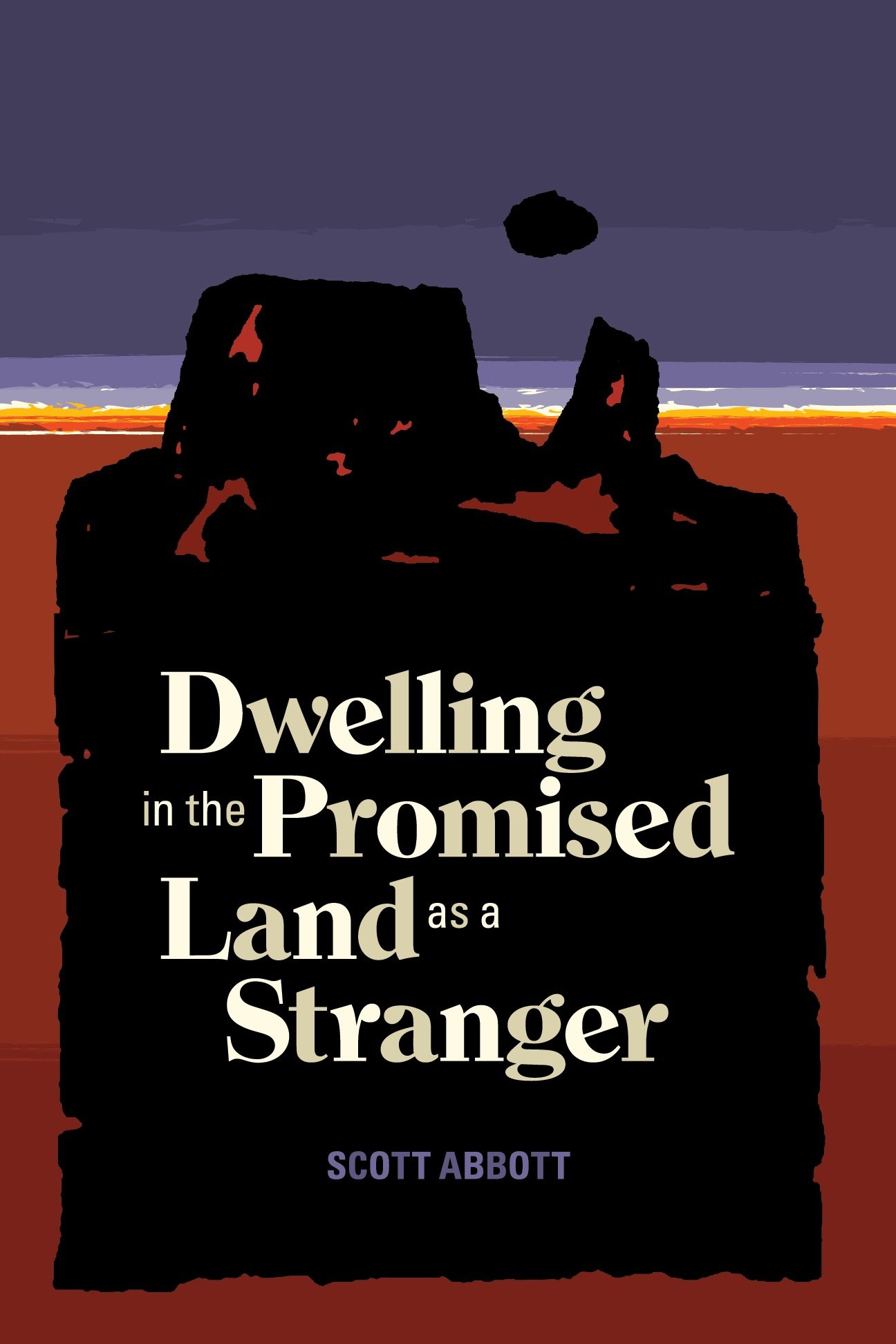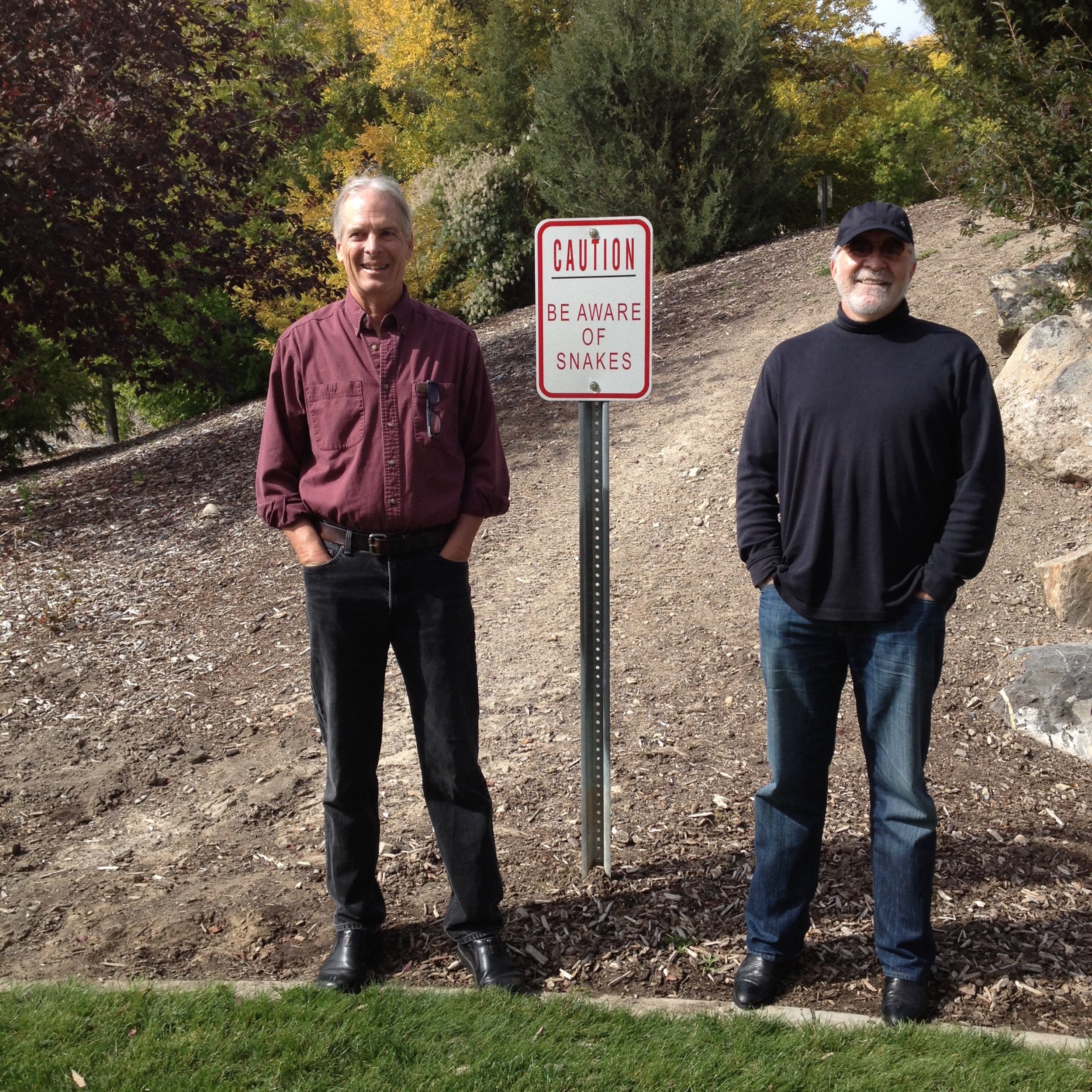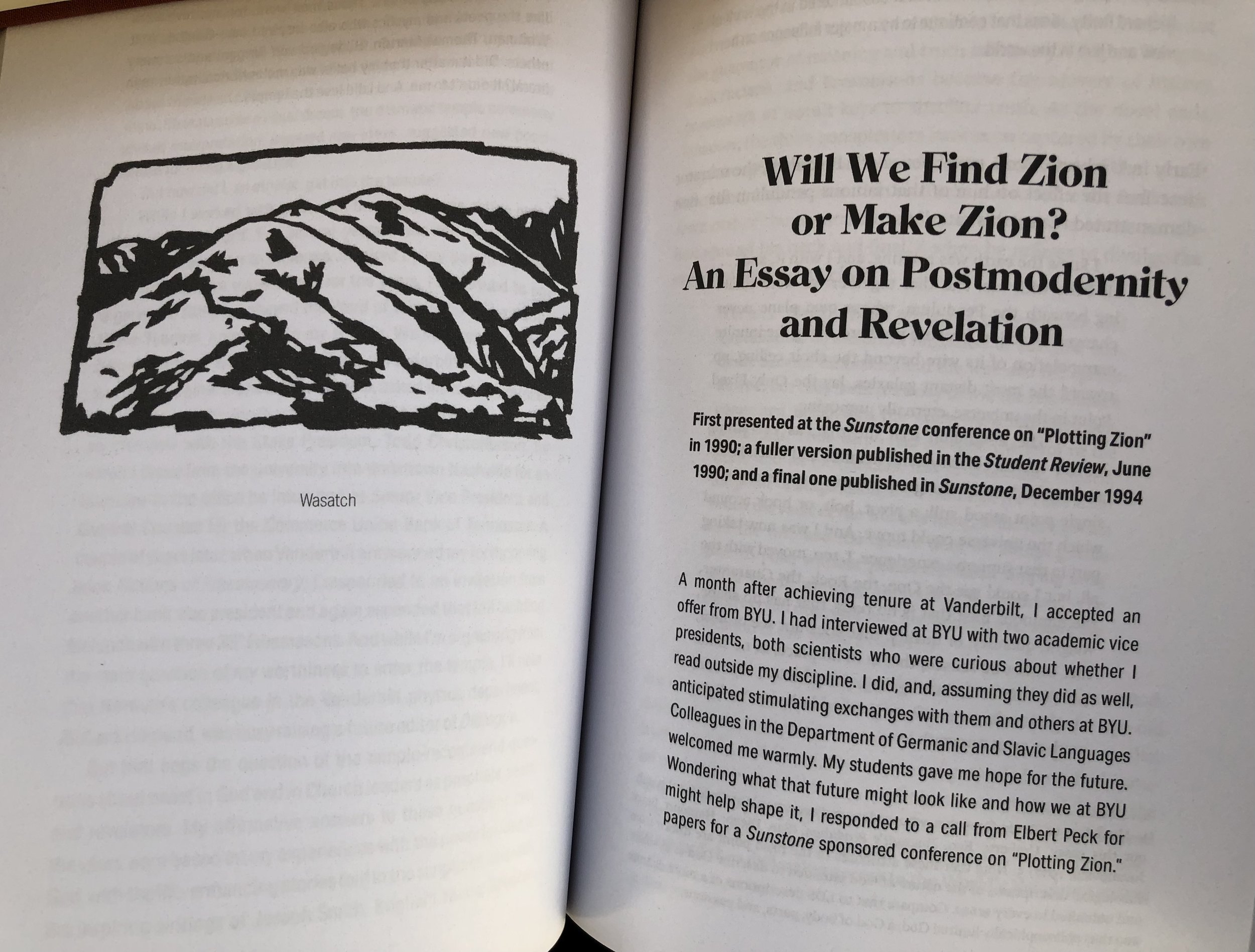Personal Encounters with Mormon Institutions
Preface by Cecilia Konchar Farr, Foreword by William Evenson
1. “Mickelsson’s Mormons,” The Sunstone Review, September 1982
2. “House of the Lord, House of the Temple: A View from Philadelphia,” with Steven Epperson, Dialogue: A Journal of Mormon Thought, Fall 1987
3. “Will We Find Zion or Make It? An Essay on Postmodernity and Revelation,” Sunstone conference on Zion, 1990, Sunstone, December 1994
4. “One Lord, One Faith, Two Universities: Tensions between ‘Religion’ and ‘Thought’ at BYU,” Sunstone, September 1992
5. “The Provo Window: Late Night Thoughts on the Purposes of Art and the Decline of a University,” Annual of the Association for Mormon Letters, 1996
6. “Clipped and Controlled: A Contemporary Look at BYU,” Sunstone, September 1996
7. “On Ecclesiastical Endorsement at BYU,” Sunstone, April 1997
8. “Telling Stories” (review of Wayne Schow’s Remembering Brad: On the Loss of a Son to Aids), Sunstone, July 1997
9. “Sinister Virtue: The Effects of Cultural Despair on Academic Freedom at BYU,” AAUP Conference on Religious Institutions and Academic Freedom, Chicago, 1997 (unpublished)
10. Debating the Possibility of a Mormon University: Notes from an Appeal, 1998 (unpublished)
11. “Mitt Romney, BYU, and Abortion Rights,” Boston Globe, 27 October 2002
12. Reviews of New Work by Brian Evenson: “Mormon Civilization and its Schizophrenic Discontents” and “Affliction Fiction”
13. “Hermeneutic Adventures in Home Teaching: Mary and Richard Rorty,” Dialogue, A Journal of Mormon Thought, Summer 2010
14. “New LDS Restrictions on Children of Gay Parents Make Perfect Sense,” The Goalie’s Anxiety (blog), November 6, 2015
15. “UVU President Matthew Holland Continues His Battle against Marriage Equality,” The UVU Review, November 13, 2017
Published by BY COMMON CONSENT PRESS
Dedicated to dear friends
Steven Epperson and Sam Rushforth
Your inspiration can be found on every page this book
The sign is ambiguous, but not the friendship
Steven, Dietrich, Gabriel, and me…a few years ago
This is one of those rare books that I couldn’t put down. Part saga, part humor, and part reflection, Scott Abbott, who taught at BYU for nearly two decades, chronicles his turbulent encounters with Mormon leaders and Mormon institutions. I found the chapters defending his BYU colleagues from overzealous bureaucrats both amusing and alarming. I also enjoyed his discussions on academic freedom, race, sexuality, and gender equality. Abbott’s sense of justice, unflinching courage, and sheer humanity shine brilliantly throughout this book.
—Matthew L. Harris, author of Watchman on the Tower: Ezra Taft Benson and the Making of the Mormon Right
Scott Abbott must have questioned authority from his birth. He has spent much of his life speaking truth to power, often to power that didn’t want to hear that truth. He has always defended open, rigorous debate and has always been as willing to consider criticism of his own ideas and actions as to offer criticism of others, particularly when their decisions were destructive to institutions and individuals Scott cared about, including Brigham Young University, intellectuals, feminists, and homosexuals. This compilation of Scott’s essays, letters, and articles, spanning over thirty years, demonstrates many significant ideas: That reason and intellectual inquiry do not oppose faith but, rather, are necessary for authentic faith to flourish. That coercion kills growth and agency. That an eccentric individual is most likely not dangerous to an institution but rather the source of vital ideas that will help renew it. That individuals who are harmed by shortsighted policies matter as much as the empowered who make and carry out those policies. Reading this book will help administrators consider how to be more kind and farsighted. It also offers a model of how to speak out against the damaging and dishonest policies rampant in our contemporary culture, however they are disguised.
—Susan Elizabeth Howe, Emerita Professor of English, BYU, and author of Salt and Stone Spirits
In these essays, Scott Abbott has sketched his personal odyssey. A boy from a Four-Corners oil town went away to college, became an ascendant academic, then pivoted, poignantly. A stirring in his deep parts pointed him toward the transcendent prospect of a consummate community, lustrous in its interweaving of humane quest with tokens of godliness. Eventually, contesting the interweave brought embroilment and sundering, an uneasy reality to which Professor Abbott has borne witness in ways heartrending and cautionary.
At the zenith in his early professional career, Professor Abbott switched trajectories, despite the pleas of those who had seen him to the heights. He was in the grip of allure, caught up to a far more transporting prospect. To it would he devote his considerable gifts. He would return to the place where his intellectual striving had first accelerated and been concomitantly and irrevocably spiritualized. The bet was that, by doing so, he would join with others similarly endowed to push that place further toward its rightful rendezvous with the empyrean.
How the bet played out is recounted in the essays—an all-too-familiar tale of mixed loyalties in a bureaucratized version of the schoolyard classic “king of the hill”. In Professor Abbott’s deft telling, he weaves currents of hope, despair, aspiration, and resignation.
—Hal Miller, Jr, Professor, Cognitive and Behavioral Neuroscience, BYU
Our beloved BYU community is scattered all over the world now: The chronic questioners in Chicago, Tulsa, Ann Arbor, New York and St. Paul whose gift to the faith is their constant doubt; the multi-generational-Mormons, intellectuals who take their heritage with them to Abu Dhabi, Boston, San Diego, New Haven, or Oxford, Mississippi; the believing women everywhere who struggle with a patriarchy that won’t accept them whole; our wise elders who persist in Provo and Orem and the Salt Lake Valley, never giving up. For those few years, we invested in the future as we imagined a space where we could all thrive together, a promised land, as it were, a true university. And though that land was only imagined, it returns occasionally, magically like Brigadoon. Scott’s book conjures it. I admire his vision and cherish how it became my own. In these pages, drawn together in faith and love, we professors and scholars, feminists and intellectuals are strangers no more.
—Cecilia Konchar Farr, formerly Professor of English and Women’s Studies and a Carondelet Scholar in the Women’s College at St. Catherine University in St. Paul, Minnesota, now Dean of the College of Liberal and Creative Arts at West Liberty University
Abbott is stunningly open and personal in this book of essays, engaging the reader and drawing her into thoughtful and eloquent examination of philosophical issues dealing with our relationships to others, to religion, and to the making of meaning, all in the context of his relationship with Mormonism.
—William Evenson, Emeritus Professor of Physics, BYU, Corvallis, Oregon
“A fascinating and important book. Abbott narrates BYU's debates over academic freedom in the 1990s, and demonstrates how it became the conservative & reactionary institution it is today. Recommended.”
“Some really fabulous details from the 1990s BYU wars, if anyone is interested. Excellent background for today’s issues.”
Ben Park
The cover , after an original woodcut by Royden Card, was designed by Christian Harrison. Sections of the book are separated by additional Card woodcuts. Many thanks to Royden Card and to Andi Pitcher Davis, who made this happen. Royden Card Fine Art
Royden Card Woodcuts Accompany Each Chapter
From the Introduction
Freud argued in Civilization and Its Discontents that humans are instinctually aggressive toward one another and that the structures of civilization are meant to restrict aggression. Prohibitions that are too strong, however, lead to unhappiness and neurosis. One theme running through these essays is that over the course of several decades people governing the Church’s institutions increasingly exerted control that vitiated Joseph Smith’s counsel: “Teach them correct principles and let them govern themselves.” Only decades after the fact, after reading Greg Prince’s descriptions of the power struggles Leonard Arrington had to negotiate as Church Historian, did I realize that not only were my arguments for less restrictive institutional practices beside the point, but that they were totally irrelevant in the hierarchical system in which BYU’s policies were determined. Still . . . time passes, things change, and in some naïve corner of my soul I remain hopeful for the future of my religion.
AAUP Censure of the BYU Administration “Much more than an isolated violation of academic freedom, the investigating committee’ inquiries into complaints at BYU have revealed a widespread pattern of infringements on academic freedom in a climate of oppression and fear of reprisals.”
First page of the AAUP Report
Final page of the AAUP Report








